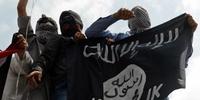-
Legal framework needed to govern soon-to-arrive autonomous killer drones: Experts
With about 8,000 unmanned aircrafts and roughly 12,000 unmanned ground vehicles, the U.S. military boasts the world’s largest drone arsenal, followed by Israel, with China, Europe, India, and Russia in the second tier. Unmanned aerial vehicles (UAV) will pose a challenge to current international laws of warfare since someday, and sooner rather than later, they will be able to act autonomously – and kill autonomously. The international community has yet to adopt special laws to govern the use of drones in combat.
-
-
EMS drone dramatically increases survival chances of heart attack patients, accident victims
A Dutch graduate student has designed an unmanned, autonomously navigating mini airplane that can quickly deliver a defibrillator to where it is needed. When the emergency services receive a cardiac arrest call, this drone can quickly deliver a defibrillator to the emergency scene. Via a livestream video and audio connection, the drone can also provide direct feedback to the emergency services and the persons on site can be instructed how to treat the patient. The drone finds the patient’s location through the caller’s mobile phone signal and makes its way to the location using GPS. The drone can carry up to four kilograms of medical equipment.
-
-
Peekaboo, I see you: Government authority intended for terrorism is used for other purposes
The Patriot Act continues to wreak its havoc on civil liberties. Section 213 was included in the Patriot Act over the protests of privacy advocates and granted law enforcement the power to conduct a search while delaying notice to the suspect of the search. Known as a “sneak and peek” warrant, law enforcement was adamant Section 213 was needed to protect against terrorism. But the latest government report detailing the numbers of “sneak and peek” warrants reveals that out of a total of over 11,000 sneak and peek requests, only fifty-one were used for terrorism. Yet again, terrorism concerns appear to be trampling our civil liberties.
-
-
Law enforcement: Apple iOS 8 software would hinder efforts to keep public safety

With its new iOS 8 operating software, Apple is making it more difficult for law enforcement to engage in surveillance of users of iOS8 smartphones. Apple has announced that photos, e-mail, contacts, and other personal information will now be encrypted, using the user’s very own passwords — meaning that Apple will no longer be able to respond to government warrants for the extraction of data.
-
-
Canada considering expanding powers of its security agencies
The Harper government is considering legislation which would expand the powers of the Canadian Security Intelligence Service (CSIS) to investigate, apprehend, and detain homegrown terrorists. CSIS wants the power to take advantage of the so-called “Five Eyes” spy network to which Canada, the United Kingdom, America, Australia, and New Zealand all belong. CSIS is also asking for more power to track Canadians believed to have been radicalized, and to take more advantage of anonymous sources. Ottawa officials are talking about whether to give CSIS explicit legislative permission to engage in “threat-diminishment” — a power which the intelligence agency’s watchdog recently pointed out that CSIS already uses, but the law does not explicitly permit.
-
-
FBI wants Congress to mandate backdoors in tech devices to facilitate surveillance
In response to announcements by Appleand Googlethat they would make the data customers store on their smartphones and computers more secure and safer from hacking by law enforcement, spies, and identity thieves, FBI director James Comey is asking Congress to order tech companies to build their devices with “backdoors,” making them more accessible to law enforcement agencies.Privacy advocates predict that few in Congress will support Comey’s quest for greater surveillance powers.
-
-
Growing scrutiny of police use of Stingray surveillance technology
IMSI-catcher (International Mobile Subscriber Identity), aka Stingray, is a surveillance technology which simulates cell phone towers in order to intercept mobile phone calls and text messages. Privacy advocates have scrutinized the use of Stingrays in U.S. cities because, when the device tracks a suspect’s cell phone, it also gathers information about the phones of bystanders within the target range. Additionally, police use Stingrays without properly identifying the technology when requesting search warrants has raised concerns.
-
-
U.S. intelligence, leaders unclear on exact danger posed by ISIS

Considerable discrepancies in the reporting from U.S. intelligence services regarding the strength of the Islamic State (IS) have led critics to the conclusion that the U.S. intelligence community knows little about the terrorists’ actual strength as the United States is in the process of developing a military strategy to defeat the Islamist organization.
-
-
Sensors everywhere might mean privacy nowhere: Expert
Just as we are coming to grips with having less privacy in our lives thanks to the Internet, a new use of the technology is poised to present new questions about security and privacy — and create a new threat to society. The so-called “Internet of Things” will see small microprocessors and sensors placed seemingly everywhere, and these devices will collect much data about us — often without our knowledge. A second concern with the Internet of Everything is that we may have already crossed a threshold where a large event that would cripple these devices would mean that our current civilization would come to an immediate stop. An occurrence of a massive solar flare, like the 1859 Carrington Event, could disable all the devices on which we have come to depend. “If something like that were to happen, the Amish would become the only people without a major life upheaval,” says one researcher.
-
-
Atlanta’s rapid transit deploys AI video analytics to bolster public safety
The Metropolitan Atlanta Rapid Transit Authority (MARTA) is deploying Behavioral Recognition Systems’ AISight, an artificial intelligence-based analytics solution that teaches itself to recognize and alert on unexpected patterns within massive volumes of data.
-
-
U.S. opens a second drone base in Niger
The Pentagon has reached an agreement with the government of Niger to open a second U.S. drone base in the landlocked country. The base, in the city of Agadez, will help the U.S. Air Force track Islamist militants who have gained control of remote parts of North and West Africa. U.S. and French troops already operate out of a military base in Niamey, Niger’s capital, where drones are set to conduct reconnaissance flights throughout the region.
-
-
People in leadership positions more willing to sacrifice privacy for security
People with higher job status may be more willing to compromise privacy for security reasons and also be more determined to carry out those decisions, according to researchers. This preoccupation with security may shape policy and decision-making in areas ranging from terrorism to investing, and perhaps cloud other options, said the author of the new study, adding: “What may get lost in the decision-making process is that one can enhance security without the negative impact on privacy.”
-
-
Using drones in law enforcement work
Using unmanned flight systems for domestic surveillance can provide emergency responders information during fires, earthquakes, storms, and man-made disasters, said John Hill, director of the Indiana Department of Homeland Security.He said that the general public is open to the use of unmanned systems when informed about their use.
-
-
NSA, FBI monitored e-mails of prominent Muslim American leaders, attorneys
The NSA and FBI monitored the e-mails of prominent Muslim American leaders and attorneys, including the head of the largest American Muslim civil rights group, The Intercept reported yesterday. Critics of the surveillance programs of the NSA and other government agencies said the revelations proved their contention that these programs should be more closely monitored. The critics say that in order to obtain FISA court approval for the surveillance, the government alleged that these activists were agents of foreign powers. The critics also note that the monitoring of lawyers’ e-mails raises concerns that some of the information collected may be protected by the attorney-client privilege, which the intelligence agencies are bound to respect.
-
-
Firefighters mull using drones in fighting wildfires
Federal wildland firefighting officials are exploring the deployment of drones to assist in surveillance and reconnaissance missions during a wildfire. Drones sent to survey fire patterns during a wildfire could help keep firefighters out of risky situations by providing real-time information to officials on the ground. Few wildfire officials have used drones in the line of duty, and managers with the U.S. Bureau of Land Management(BLM) and U.S. Forest Servicesay that while the technology has potential, agencies do not have the budget and have not developed protocols to integrate drones into regular firefighting operations.
-
- All
- Regional
- Water
- Biometrics
- Borders/Immig
- Business
- Cybersecurity
- Detection
- Disasters
- Government
- Infrastructure
- International
- Public health
- Public Safety
- Communication interoperabillity
- Emergency services
- Emergency medical services
- Fire
- First response
- IEDs
- Law Enforcement
- Law Enforcement Technology
- Military technology
- Nonlethal weapons
- Nuclear weapons
- Personal protection equipment
- Police
- Notification /alert systems
- Situational awareness
- Weapons systems
- Sci-Tech
- Sector Reports
- Surveillance
- Transportation
Advertising & Marketing: advertise@newswirepubs.com
Editorial: editor@newswirepubs.com
General: info@newswirepubs.com
2010-2011 © News Wire Publications, LLC News Wire Publications, LLC
220 Old Country Road | Suite 200 | Mineola | New York | 11501
Permissions and Policies
Editorial: editor@newswirepubs.com
General: info@newswirepubs.com
2010-2011 © News Wire Publications, LLC News Wire Publications, LLC
220 Old Country Road | Suite 200 | Mineola | New York | 11501
Permissions and Policies
